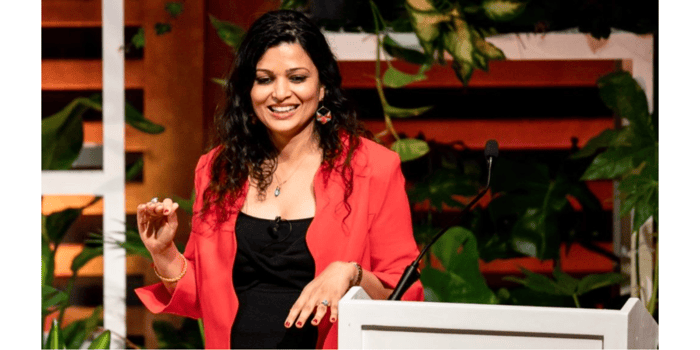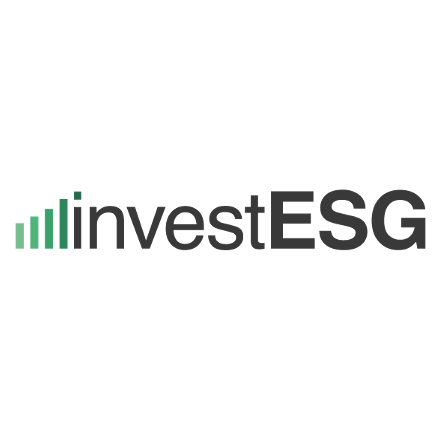by Hedda Pahlson-Moller, CEO of TIIME, and Sana Kapadia, Director of Strategy at 2X Global, and Cécile Sevrain, co-founder & Head of Impact Measurement and Management at TIIME


Gender lens investing (GLI) is the integration of gender factors alongside financial analysis to support stronger financial, social and environmental outcomes. Gender-smart investors recognise that financial systems engage with and benefit men and women differently, and are actively committed to using finance as a tool to promote gender equality. As the field has matured, there is greater emphasis on gender and a broader diversity frame.
Diversity is not just how our marvellous world is comprised, it is also the most powerful tool we can leverage to achieve the following laundry list of objectives.These goals would be preached in any MBA program around the world, but unfortunately rarely attributed to gender factors – for now…
Fosters innovation and creativityEnhances decision-making processesImproves organisational and financial performanceBroadens talent pool and increases employee satisfactionBetter connects with diverse customer basesSupports the design, creation and adoption of more gender-smart products and servicesEtc…What kind of diversity do you ask? All kinds. If we start with a simple analysis for some long overdue progress, our population is split approximately in the middle by gender – so it’s an obvious point of departure. It’s not just about putting more women at the decision making table, but also pausing to ask, ‘why have they not been here all along’ – and follow up with, ‘how do we keep improving?’ After all these years of persistent gender inequality, isn’t it time to reverse the burden of case-making by asking mainstream investors to justify their weddedness to legacy approaches and allocations?
Let’s look at the numbers
While the moral imperative is a driver in its own right, there is no shortage of evidence-based business and economic reasons supporting the significant ramp-up of gender-lens investing and practices. For instance, gender-diverse teams have 20% higher IRR in emerging markets or this McKinsey study that outlines companies lacking in diversity were 29% more likely to underperform. If you are craving more data, check out a whole list here.
In fact, there is an excellent book full of arguments and case studies on exactly this: The XX Edge: Unlocking higher returns and lower risk by two wonder women who have paved the way for GLI: Patience Marime-Ball and Ruth Shaber. They summarise efficiently and compellingly, the obvious drivers:
Expanding the use of diverse talent in financial decision-making optimises returns, grows the overall economy, and extends more opportunity to everyone.Optimising human talent leads to more innovation and results in expanding financial returns for investors.Women’s leadership skills are currently underutilised across all capital markets. Women represent only a small fraction of the individuals making the financial decisions that impact domestic and global economies.This underutilization leads to inefficiencies and missed opportunities in the markets.“– Extract from The XX Edge: Unlocking higher returns and lower risk by Patience Marime-Ball and Ruth Shaber
How big is the gender finance field today?
Gender lens investing (defined by the opening statement and continued in more detail below) has about $20 billion under management, with the field only getting stronger, wider and deeper. Most notable is the steady and persistent growth. Furthemore, the 2X Challenge, launched at the 2018 G7 Summit, significantly surpassed its original 2018-2020 target to mobilise $3bn in gender lens investments and raised more than US$11bn. Then in 2022, the second round of the 2X Challenge has again exceeded its target and collectively raised gender lens investments totaling US$ 16.3 Billion, benefitting 473 businesses across all global emerging market regions. This brings the total investments under the 2X Challenge since 2018 to US$ 27.7 Billion. Furthermore, there is a diversified flavour of instruments and asset classes through which gender-smart capital is being deployed as observed by the momentum in public markets, gender bonds and other sustainability bonds.
More actors are utilising a gender lens in their methodologies – and gender-smart investors are increasingly moving away from silos and bringing gender into existing conversations: whether ESG, sustainability or broader impact approaches. In practice, this means bringing gender analysis into all investment themes – whether in climate, tech, health, financial services, consumer products or infrastructure – to consider how gender is playing out across an investment’s products, employee base, customers, and supply chains. It also means considering how gender can be leveraged to achieve better financial and impact outcomes.
Read full investESG article here
about
Hedda Pahlson-Moller is the CEO of TIIME, an Impact Catalyst – Education, Advocacy and Advisory – building the impact investing field through public and private markets.
Hedda is a private investor, strategic advisor and adjunct professor committed to catalyzing a systemic shift towards impact finance – leveraging critical lenses of social justice and planetary health to expedite a just transition. She serves as an independent board director to family offices, private and public equity funds as well as NGOs and government. Read more
Sana Kapadia is a seasoned finance and investment professional, gender-smart investing specialist and global changemaker. Her career has spanned gender finance, mission venture capital, development finance, impact investing and equity research. At 2X Global, she leads on the co-creation and implementation of the strategic plan across the three core pillars, and drives collaboration and connectivity across the field. She is focused on leveraging capital as a tool for social change and to support deep and intersectional systemic shifts.
Cécile Sevrain is a co-founder & Head of Impact Measurement and Management at TIIME. She is passionate about social impact and notably how business/finance can support social innovation to solve most pressing issues.Cécile does training on impact/sustainable finance, impact metrics and gender-smart investing (Universities, Professional Associations). She is also involved as an advisor in several European impact and gender-smart funds. Cécile is also a jury member for the European Commission (EIC Accelerator).
All opinions expressed are those of the author and/or quoted sources. investESG.eu is an independent and neutral platform dedicated to generating debate around ESG investing topics.
Published by
 investESG
investESG
 investESG
investESG

